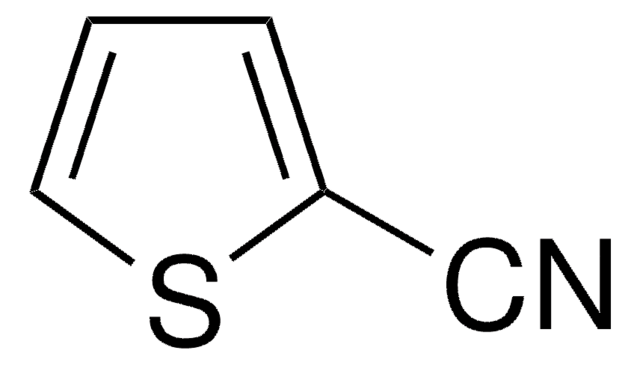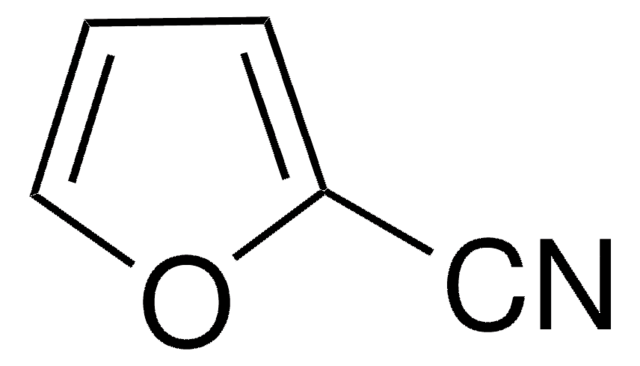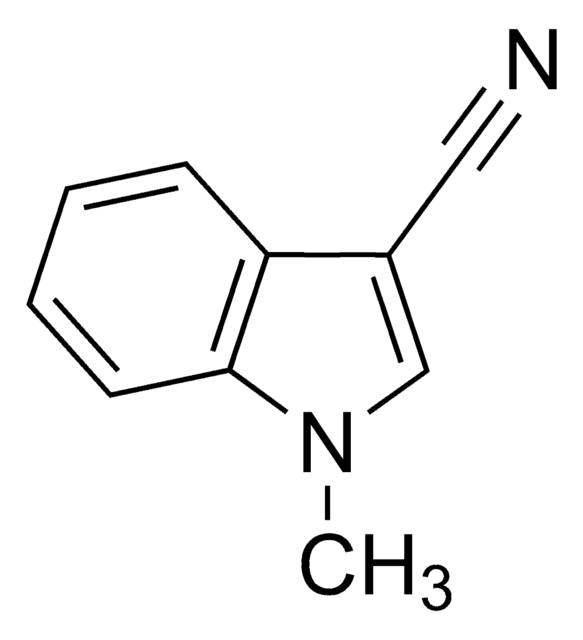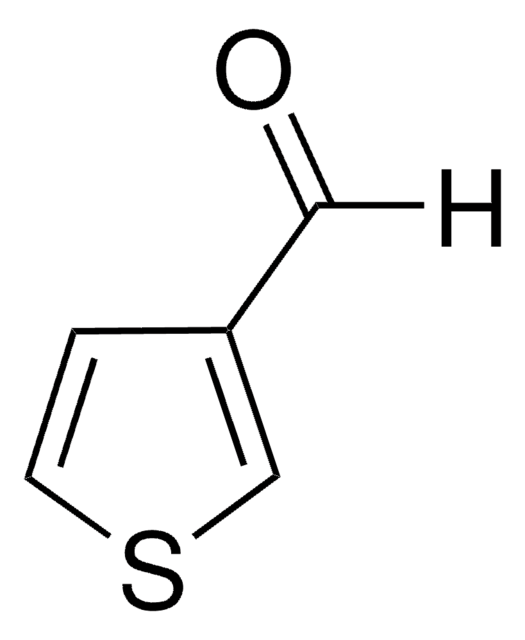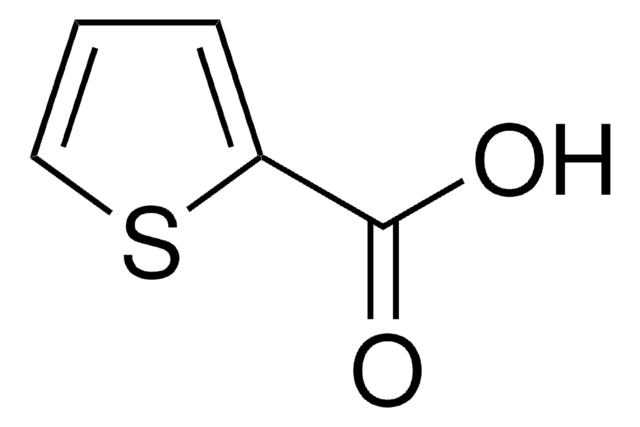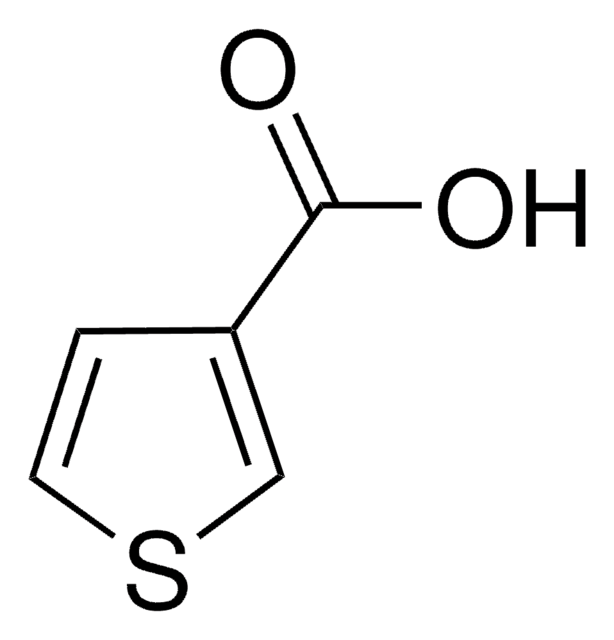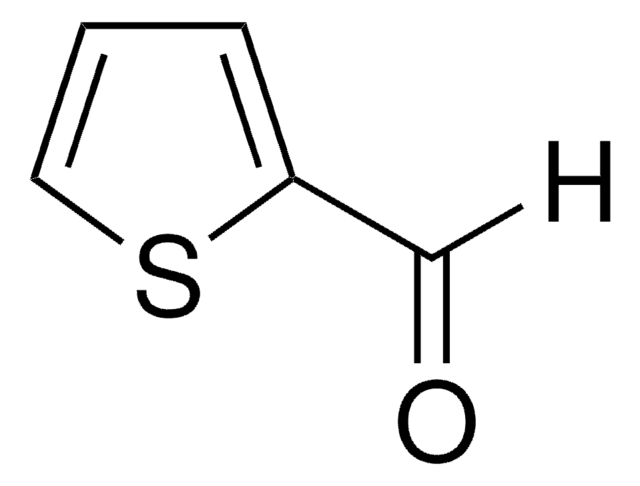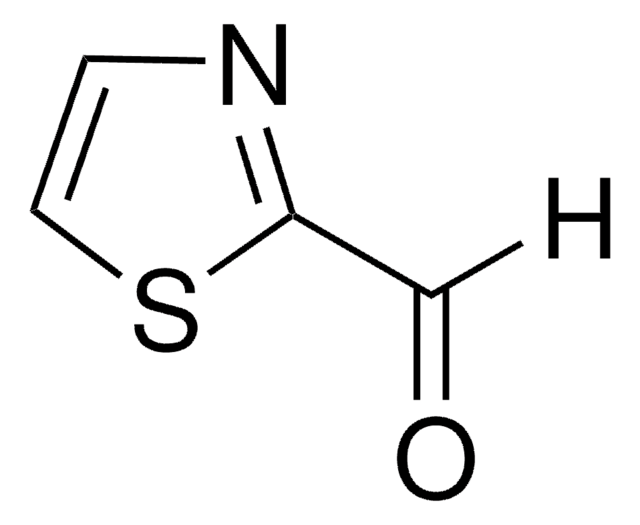597449
3-Thiophenecarbonitrile
95%
Synonym(s):
3-Cyanothiophene, Thiophene-3-nitrile
About This Item
Recommended Products
Quality Level
Assay
95%
refractive index
n20/D 1.5630 (lit.)
bp
82 °C/10 mmHg (lit.)
density
1.2 g/mL at 25 °C (lit.)
SMILES string
N#Cc1ccsc1
InChI
1S/C5H3NS/c6-3-5-1-2-7-4-5/h1-2,4H
InChI key
GSXCEVHRIVLFJV-UHFFFAOYSA-N
Application
- 2,4-dinaphthyl-3-cyanothiophene via reaction with iodonaphthalene
- 2,5-bis-tri(n-butyl)tin-3-cyanothiophene, a building block for the synthesis of new alternating (3-alkyl/3-cyano)thiophene copolymers
Signal Word
Warning
Hazard Statements
Precautionary Statements
Hazard Classifications
Acute Tox. 4 Dermal - Acute Tox. 4 Inhalation - Acute Tox. 4 Oral - Eye Irrit. 2 - Skin Irrit. 2 - STOT SE 3
Target Organs
Respiratory system
Storage Class Code
10 - Combustible liquids
WGK
WGK 3
Flash Point(F)
186.0 °F - closed cup
Flash Point(C)
85.56 °C - closed cup
Personal Protective Equipment
Choose from one of the most recent versions:
Already Own This Product?
Find documentation for the products that you have recently purchased in the Document Library.
Articles
Information about lactobacilli, rod-shaped, Gram-positive, fermentative, facultative anaerobic or microaerophilic organotrophs. The lactobacillus organtroph belongs to the lactic acid bacteria group.
Today, diverse studies report the benefits of probiotics, such as inhibitory effects on pathogens, aid in the management or prevention of chronic intestinal inflammatory diseases or atopic syndromes, and support to the immune system. Potential beneficial applications abound, researchers continue to evaluate the effictiveness and clarify the mechanisms of action of probiotics.
Our team of scientists has experience in all areas of research including Life Science, Material Science, Chemical Synthesis, Chromatography, Analytical and many others.
Contact Technical Service